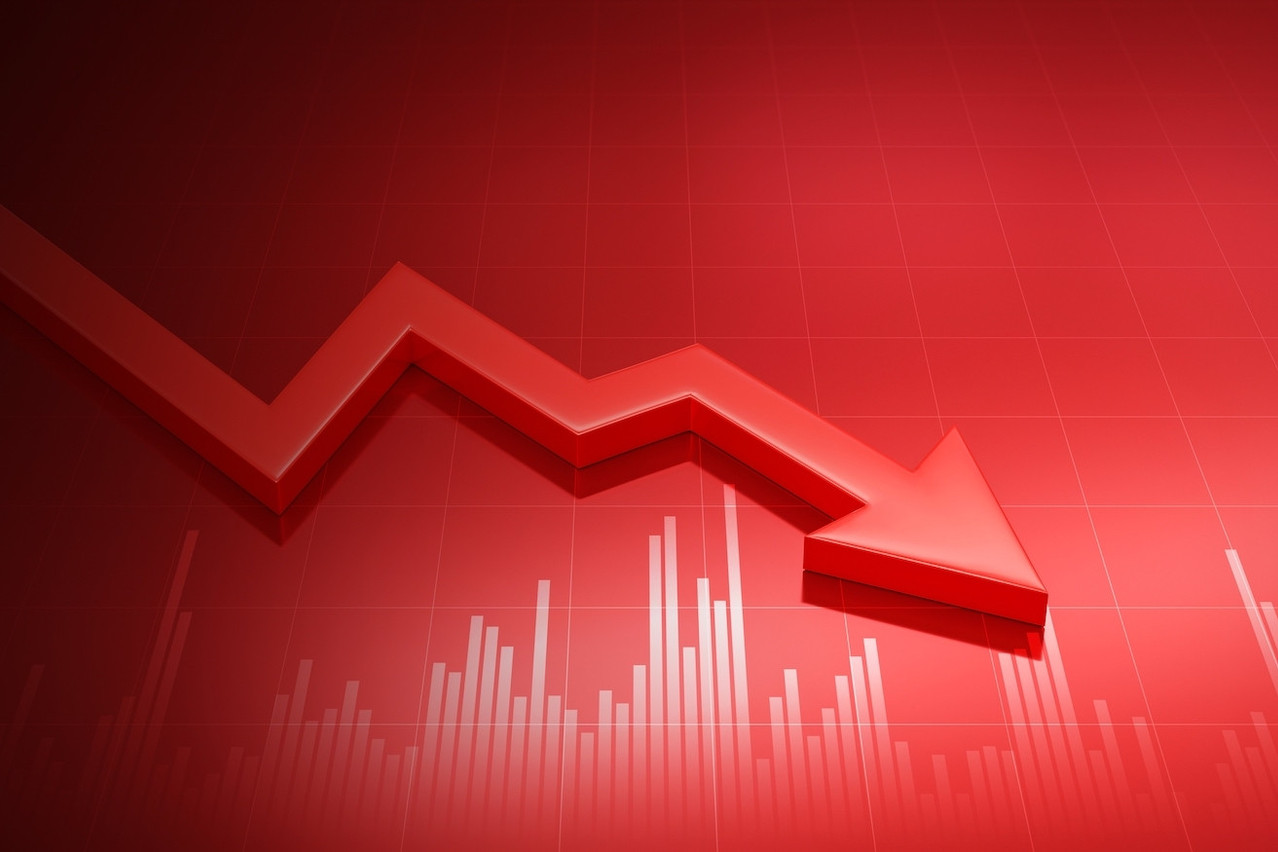Only Colombia has done worse: between 2023 and 2024, Luxembourg fell 18 places in the “economic performance” ranking, according to the IMD World Competitiveness, published in conjunction with the Chamber of Commerce. The 18 places are in addition to the 37 lost the , for a total of 55 over two years, in a category which Luxembourg was number 1 in the world in 2022.
“Two major weaknesses cloud this picture and worsen Luxembourg’s ranking”, the Chamber of Commerce in Luxembourg commented in a report. “Firstly, the country has been suffering from a lack of growth since 2022. In terms of ‘GDP growth’ and ‘GDP per capita growth’, Luxembourg ranks 63rd and 62nd respectively out of 67. It had already been seriously downgraded on this criterion last year, as its growth in 2022 was much lower than that of its main competitor economies. At the time, this was because Luxembourg’s economy had been much less affected by covid and had completed its rebound phase well before the others. This time, the situation is different, as Luxembourg is paying for the economic recession of 2023. The country’s GDP contracted by 1.1%, while the average growth of the economies assessed in this ranking was +1.6%. A slight rebound in growth is expected for 2024 (+2% according to Statec).”
Read also
The Chamber of Commerce also noted “a sharp fall” in foreign direct investment flows, bearing in mind that Luxembourg’s ranking is highly dependent on whether the investment is higher or lower.
While the country was still ranked 11th for the efficiency of public services, the grand duchy took 27th place for the regulatory and legal framework, which “supports the absolute need to lighten the regulatory burden on businesses in Luxembourg and the European Union”, stressed the Chamber of Commerce. And Luxembourg ranks 45th in terms of tax policy. “The grand duchy ranks 56th for total taxes collected as a percentage of GDP, 53rd for personal income tax revenues and 59th for revenues from taxes on capital and property. The indicators for business taxation also contribute to the country’s decline.”
With an average of 16.5 days to set up a business, Luxembourg is 50th, a long way from modern economies such as Singapore (1.5 days), Denmark (3.5 days) and Estonia (3.5 days).
The same applies to business efficiency. While everything is going well in terms of attracting talent and highly skilled workers, “Luxembourg has the highest average hourly labour cost in the European Union (in 2023, it was €53.90), which considerably hampers its competitiveness compared with other economies such as Ireland and Poland, where the hourly rate is €40.20 and €14.50 respectively. Its 44th place ranking in terms of labour costs illustrates the effects of wage indexation, which weighs on both companies and the economy as a whole. The country is at the bottom of the league table when it comes to hourly pay in the manufacturing sector (€28.08) and pay in the services sector (57th). This is also the case for the average number of annual hours worked (60th, with 1,488 hours). On this indicator, the grand duchy is a long way behind the leading trio of the United Arab Emirates, Qatar and China, where the annual average exceeds 2,400 hours.”
Labour availability is declining, managers are less agile and business morale has deteriorated.
Read also
On the last pillar--infrastructure--Luxembourg’s ranking is stable. The Chamber of Commerce stated: “Luxembourg is in 41st place for the share of GDP allocated to R&D (0.98% in 2022), far behind countries such as Germany and Belgium, which devote 3.13% and 3.41% of their GDP respectively to R&D. The steady decline in the share of GDP allocated to R&D since 2019 raises questions, given that R&D activities are a central pillar in strengthening innovation. This drop is largely due to low R&D spending in the private sector. In Luxembourg, the share of R&D spending within companies in 2022 will represent 0.50% of GDP, compared with 2.51% in Belgium and 1.78% in Denmark.
“Furthermore, graduates in computer science, engineering, mathematics and natural sciences in 2021 represented 19.78% of their graduating class. While the trend is upwards from one year to the next, the grand duchy’s results remain well below those of the leaders in the ranking: Malaysia and Hong Kong (with 43.53% and 41.40% respectively in 2021).”
Originally published in French by and translated for Delano
